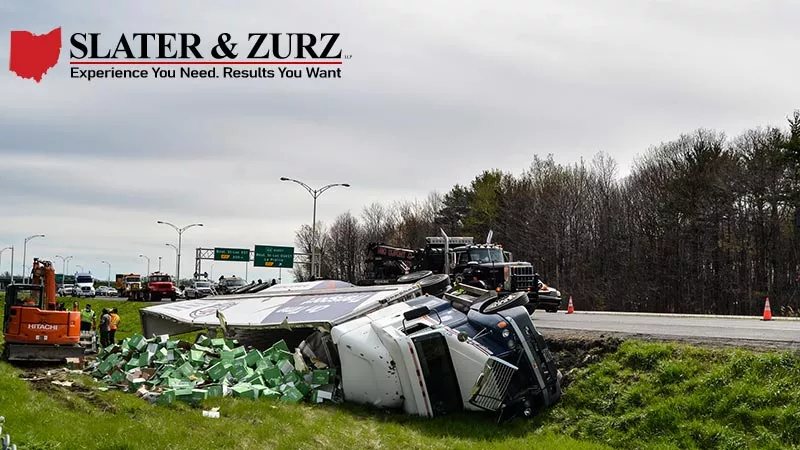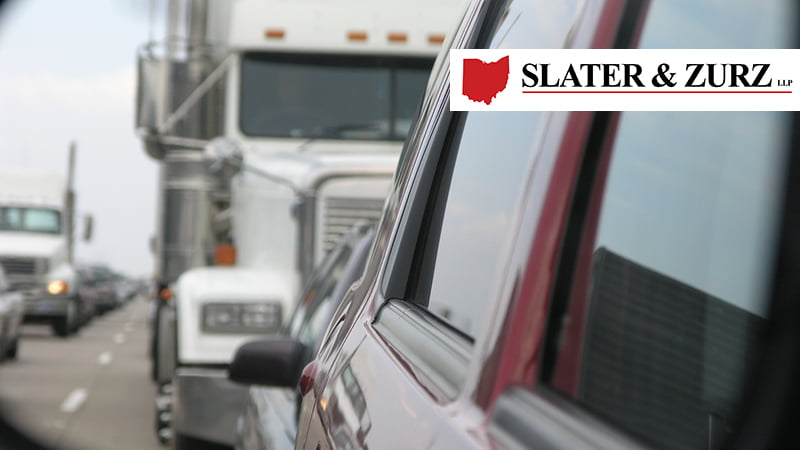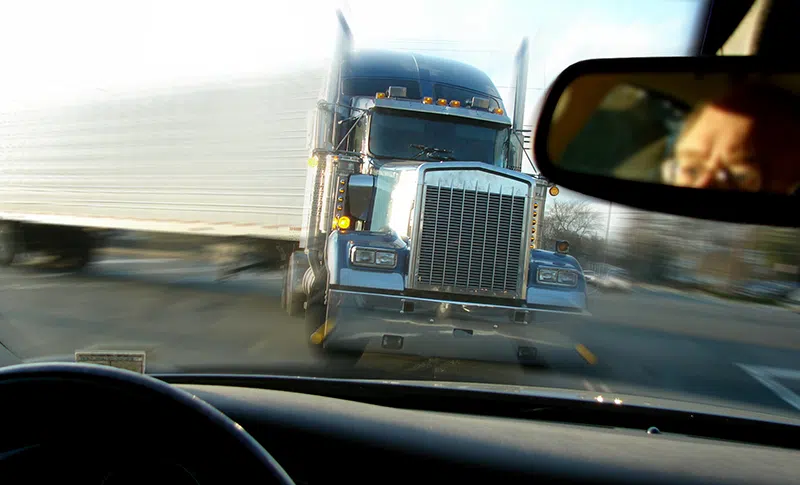If you’ve been involved in a trucking accident in Ohio, the path forward may seem daunting. Beyond the difficult process of physical and emotional recovery, navigating the legal complexities of truck accident claims can take significant time and effort.
At the heart of the challenge is understanding federal trucking regulations. Read on as we demystify what they are and how they may impact the compensation and justice you deserve.
Understanding Federal Trucking Regulations
Established by the Federal Motor Carrier Safety Administration (FMCSA), federal trucking regulations are designed to ensure the safety and accountability of the trucking industry across the country. With nearly 4,000 statewide truck-related accidents annually, Ohio’s laws closely mirror these national standards.
If the driver involved in your accident is found to have violated these rules, it can significantly strengthen your claim—here are some common ones to know.
Hours of Service (HOS) Rules
Truck drivers are required to navigate long highways for hours on end. To reduce the risk of fatigue-related accidents, federal trucking regulations limit driving hours: drivers cannot be on the road for more than 11 hours during a 14-hour shift and must then take a 10-hour break. Additionally, there are weekly driving limits, which are reset after a designated rest period.
Maintenance and Inspection Protocols
For trucks and commercial vehicles to run safely, they must undergo regular check-ups and maintenance. Documentation showing that a truck wasn’t properly cared for, such as brake failures or tire blowouts, can be critical evidence in your truck accident claim.
Drug and Alcohol Testing
To keep our roads safe, truck drivers must undergo regular checks for alcohol and drug use. If the truck driver involved in your accident was under the influence, you may be entitled to additional punitive damages.
Driver Qualification Standards
Driving a commercial truck requires more than just the ability to steer. Drivers must meet stringent standards: they must be at least 21 years old, have a good grasp of English, maintain excellent health, and hold a commercial driver’s license.
Cargo Securement Rules
Commercial trucks transport a wide array of goods, and federal trucking regulations mandate that everything from heavy machinery to crates of electronics must be securely fastened. Improperly secured cargo can lead to disastrous accidents involving falling or shifting loads.
Weight Limits
Each commercial truck has a weight limit—for most trucks, it’s 80,000 pounds, but the specific number can vary based on the truck model and the type of road. Overloading a truck can severely affect its handling and braking, increasing the risk of accidents.
The Impact of Federal Trucking Regulations on Your Injury Claim in Ohio
Federal trucking regulations don’t just set safety standards; they also play a pivotal role in determining the outcome of your injury claim. Here’s how.
Establishing Liability
Establishing liability is a crucial first step in any injury claim. Demonstrating that a trucking company or driver failed to adhere to federal trucking regulations serves as compelling evidence that they were at fault.
This evidence not only highlights liability but also lays the groundwork for proving negligence—the legal grounds for holding the responsible parties accountable for their actions.
Influencing Compensation
Evidence that a trucking company or driver blatantly disregarded the safety standards outlined in federal trucking regulations can also play a role in determining the compensation you’re awarded.
Compensation aims to cover a spectrum of needs, from addressing medical bills and recuperating lost earnings to compensating for the emotional and physical toll endured. You may also receive punitive damages, which are designed to punish particularly reckless behavior.
How to Strengthen Your Truck Accident Claim in Ohio
While the aftermath of a truck accident can be overwhelming, taking these steps can strengthen your claim.
Prioritize Your Health
First and foremost, seek immediate medical attention, even if your injuries seem minor. Some injuries, such as concussions, may not manifest symptoms immediately but could have long-term effects on your health.
Seeing a healthcare professional as soon as possible also creates critical evidence for your claim. Medical records will act as the foundational proof of your injuries, firmly linking them to the accident.
Collect Comprehensive Evidence
Although the accident has already occurred, gathering and organizing any evidence you have or can obtain post-accident is essential.
This includes:
- Medical records that detail the injuries you’ve sustained and the treatments you’re undergoing.
- Photos or videos from the accident scene (if available) or pictures of your injuries.
- Witness statements, if you were able to collect contact information at the scene or if witnesses are identified in the police report.
- The police report itself, provides an official account of the accident.
Speak to an Experienced Attorney
Rather than learning the intricacies of truck accident claims yourself, consider partnering with an experienced personal injury attorney instead.
Experienced personal injury attorneys can help you:
- Assess the evidence and identify the best strategy for your claim.
- Communicate with insurance companies on your behalf, ensuring you’re not pressured into accepting a lowball offer.
- Highlight federal trucking regulation violations that strengthen your case.
- Negotiate or litigate for fair compensation that reflects the full extent of the accident’s impact on your life, from medical bills to lost income.
Remember: While the legal process can be daunting, you don’t have to face it alone. Legal professionals like the team at Slater & Zurz can provide invaluable support every step of the way.
For a free consultation and to discuss your options, call us today at (440) 557-2861.






